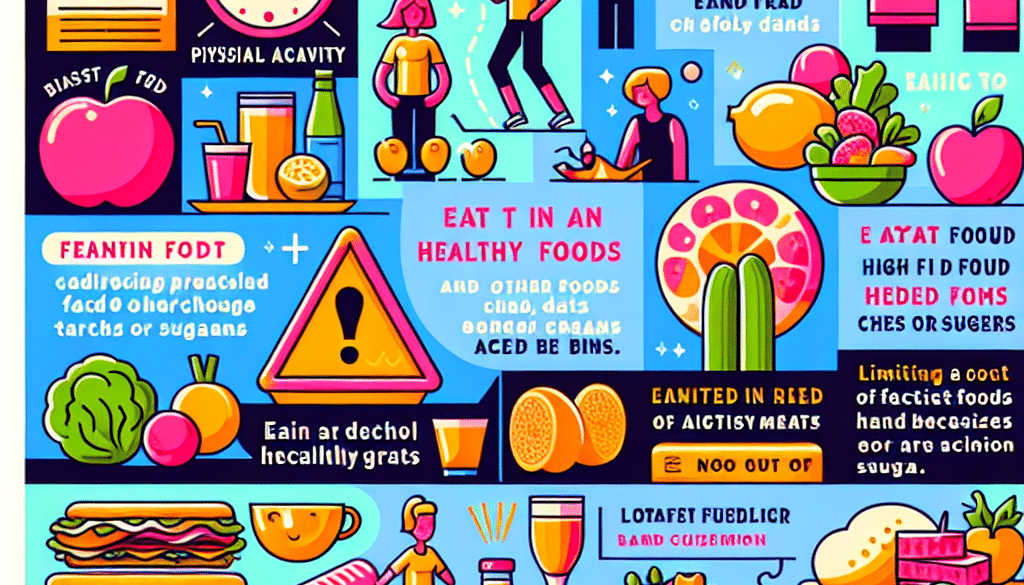WCRF Lifestyle Recommendations: Reducing Cancer Risk
-
Table of Contents
- Reducing Cancer Risk with WCRF Lifestyle Recommendations
- Understanding the WCRF’s Role in Cancer Prevention
- Key Lifestyle Recommendations to Reduce Cancer Risk
- Implementing WCRF Recommendations: Real-Life Examples
- Case Studies and Statistics: The Impact of Lifestyle Changes
- Conclusion: Embracing a Cancer-Preventive Lifestyle
- ETChem: Supporting Your Healthy Lifestyle with Quality Protein Products
Reducing Cancer Risk with WCRF Lifestyle Recommendations
Cancer remains one of the leading causes of death worldwide, but research has shown that lifestyle choices can significantly impact one’s risk of developing the disease. The World Cancer Research Fund (WCRF) has developed a set of guidelines aimed at reducing the risk of cancer through lifestyle changes. This article delves into the WCRF’s recommendations, providing insights and practical advice on how to incorporate these guidelines into daily life to minimize cancer risk.
Understanding the WCRF’s Role in Cancer Prevention
The WCRF is a leading authority on the link between diet, weight, physical activity, and cancer prevention. Through comprehensive research, the WCRF has established a set of recommendations that, when followed, can help reduce the risk of developing cancer. These guidelines are not only based on scientific evidence but are also designed to be accessible and achievable for the general population.
Key Lifestyle Recommendations to Reduce Cancer Risk
The WCRF’s recommendations encompass various aspects of lifestyle, from dietary habits to physical activity. Here’s a breakdown of their key guidelines:
- Maintain a Healthy Weight: Keeping your weight within a healthy range is crucial. Obesity is linked to several types of cancer, including breast, colorectal, and kidney cancers.
- Be Physically Active: Regular physical activity can help protect against cancers such as colon, endometrial, and breast cancer. Aim for at least 150 minutes of moderate-intensity or 75 minutes of vigorous-intensity activity each week.
- Eat a Diet Rich in Whole Grains, Vegetables, Fruit, and Beans: A plant-based diet is associated with a lower risk of cancer. These foods are high in nutrients and fiber, which can help protect against cancer.
- Limit Consumption of Fast Foods: High-calorie fast foods and sugary drinks can lead to weight gain and obesity, increasing cancer risk.
- Reduce Red and Processed Meat: Eating less red meat (such as beef, pork, and lamb) and avoiding processed meats can decrease the risk of colorectal cancer.
- Limit Alcohol Consumption: Alcohol is a known carcinogen. Reducing intake can lower the risk of cancers such as breast, liver, and colorectal.
- Do Not Rely on Supplements: Aim to meet nutritional needs through diet alone. Some supplements can even increase cancer risk.
- For Mothers: Breastfeed Your Baby, If You Can: Breastfeeding has benefits for both mother and child, including a reduced risk of breast cancer for the mother.
Implementing WCRF Recommendations: Real-Life Examples
Adopting the WCRF’s lifestyle recommendations can seem daunting, but many individuals and communities have successfully integrated these guidelines into their lives. For instance, community-based programs promoting physical activity and healthy eating have shown effectiveness in reducing obesity rates, a major cancer risk factor. Additionally, public health campaigns that discourage excessive alcohol consumption and smoking have contributed to a decrease in related cancer incidences.
Case Studies and Statistics: The Impact of Lifestyle Changes
Several studies have demonstrated the positive impact of adhering to the WCRF’s recommendations. A study published in the American Journal of Clinical Nutrition found that individuals who followed most of the WCRF’s cancer prevention recommendations had a significantly lower risk of developing cancer compared to those who followed few or none. Furthermore, statistics show that up to 50% of cancer cases could potentially be prevented through lifestyle changes, underscoring the importance of these guidelines.
Conclusion: Embracing a Cancer-Preventive Lifestyle
In conclusion, the WCRF’s lifestyle recommendations offer a science-backed blueprint for reducing cancer risk. By maintaining a healthy weight, staying active, eating a plant-based diet, limiting fast food, red and processed meat, alcohol, and avoiding reliance on supplements, individuals can significantly lower their chances of developing cancer. Breastfeeding is also encouraged for mothers. While lifestyle changes can be challenging, the potential benefits in terms of cancer prevention are substantial.
ETChem: Supporting Your Healthy Lifestyle with Quality Protein Products
As you embrace the WCRF’s lifestyle recommendations, incorporating high-quality protein into your diet is essential. ETChem’s range of collagen products can play a vital role in this regard. Their premium collagens, including marine, fish, bovine, and chicken collagen, are perfect for those looking to enhance their diet with clean, sustainable protein sources. ETChem’s products are characterized by their neutral taste and instant solubility, making them an excellent addition to a variety of foods and beverages.
Whether you’re involved in sports nutrition, weight management, or simply seeking to improve your overall health and wellness, ETChem offers comprehensive solutions to meet your protein needs. By choosing ETChem, you’re not only investing in your health but also supporting a company that’s trusted by leading global brands and Fortune 500 companies.
About ETChem:
ETChem, a reputable Chinese Collagen factory manufacturer and supplier, is renowned for producing, stocking, exporting, and delivering the highest quality collagens. They include marine collagen, fish collagen, bovine collagen, chicken collagen, type I collagen, type II collagen and type III collagen etc. Their offerings, characterized by a neutral taste, instant solubility attributes, cater to a diverse range of industries. They serve nutraceutical, pharmaceutical, cosmeceutical, veterinary, as well as food and beverage finished product distributors, traders, and manufacturers across Europe, USA, Canada, Australia, Thailand, Japan, Korea, Brazil, and Chile, among others.
ETChem specialization includes exporting and delivering tailor-made collagen powder and finished collagen nutritional supplements. Their extensive product range covers sectors like Food and Beverage, Sports Nutrition, Weight Management, Dietary Supplements, Health and Wellness Products, ensuring comprehensive solutions to meet all your protein needs.
As a trusted company by leading global food and beverage brands and Fortune 500 companies, ETChem reinforces China’s reputation in the global arena. For more information or to sample their products, please contact them and email karen(at)et-chem.com today.





